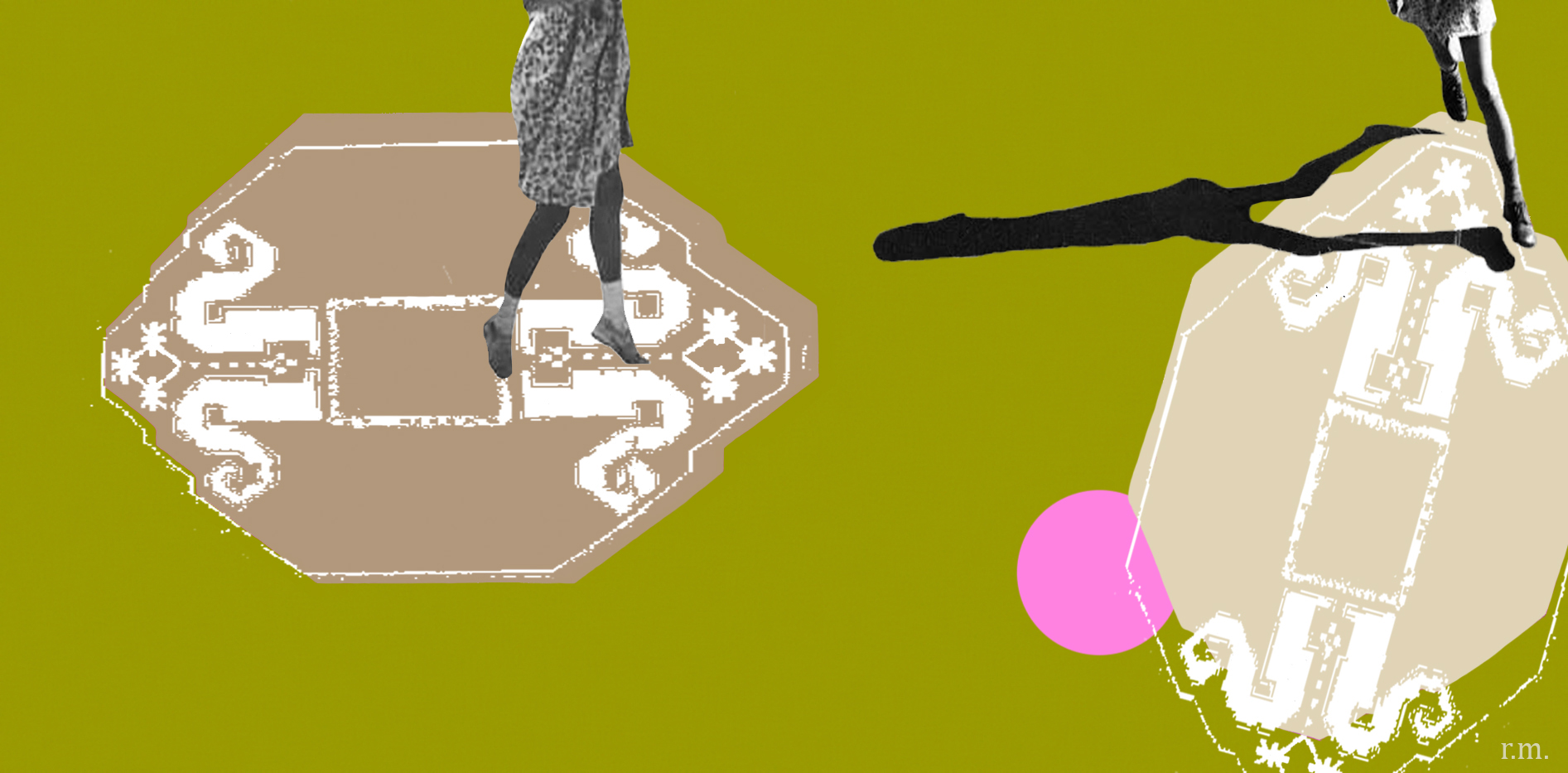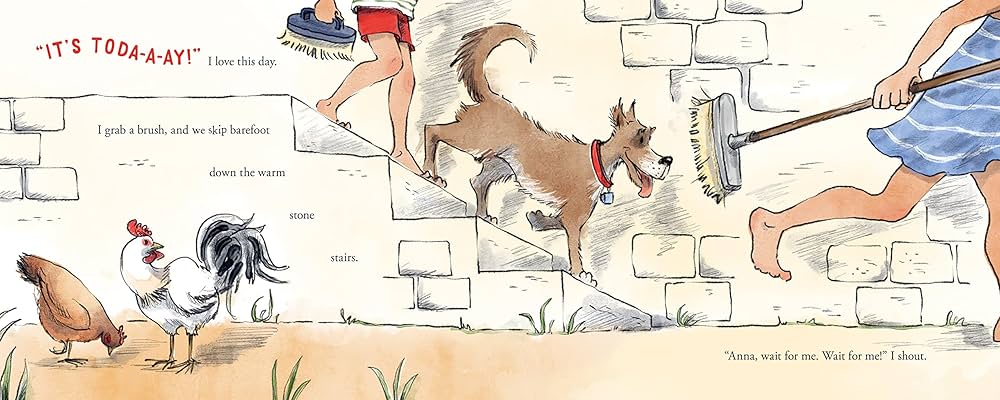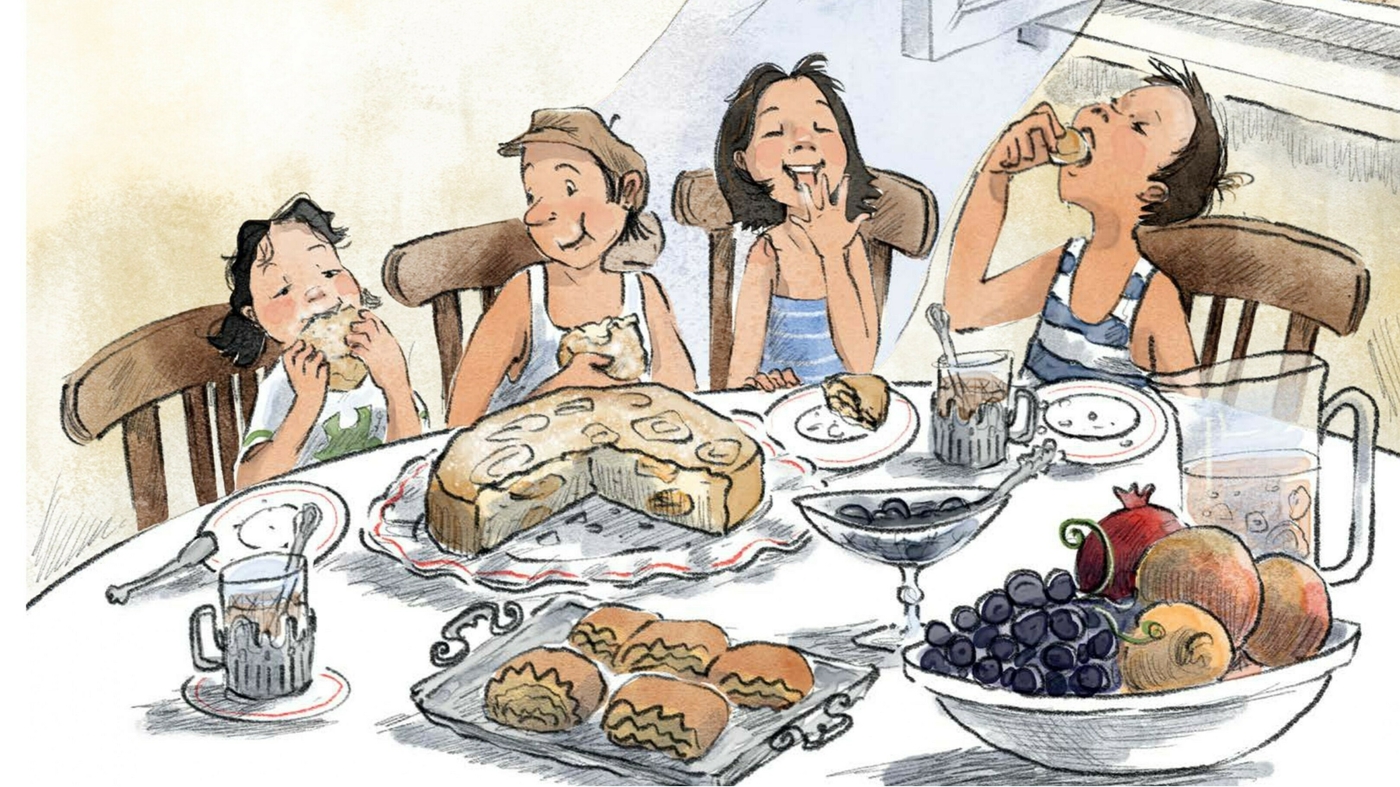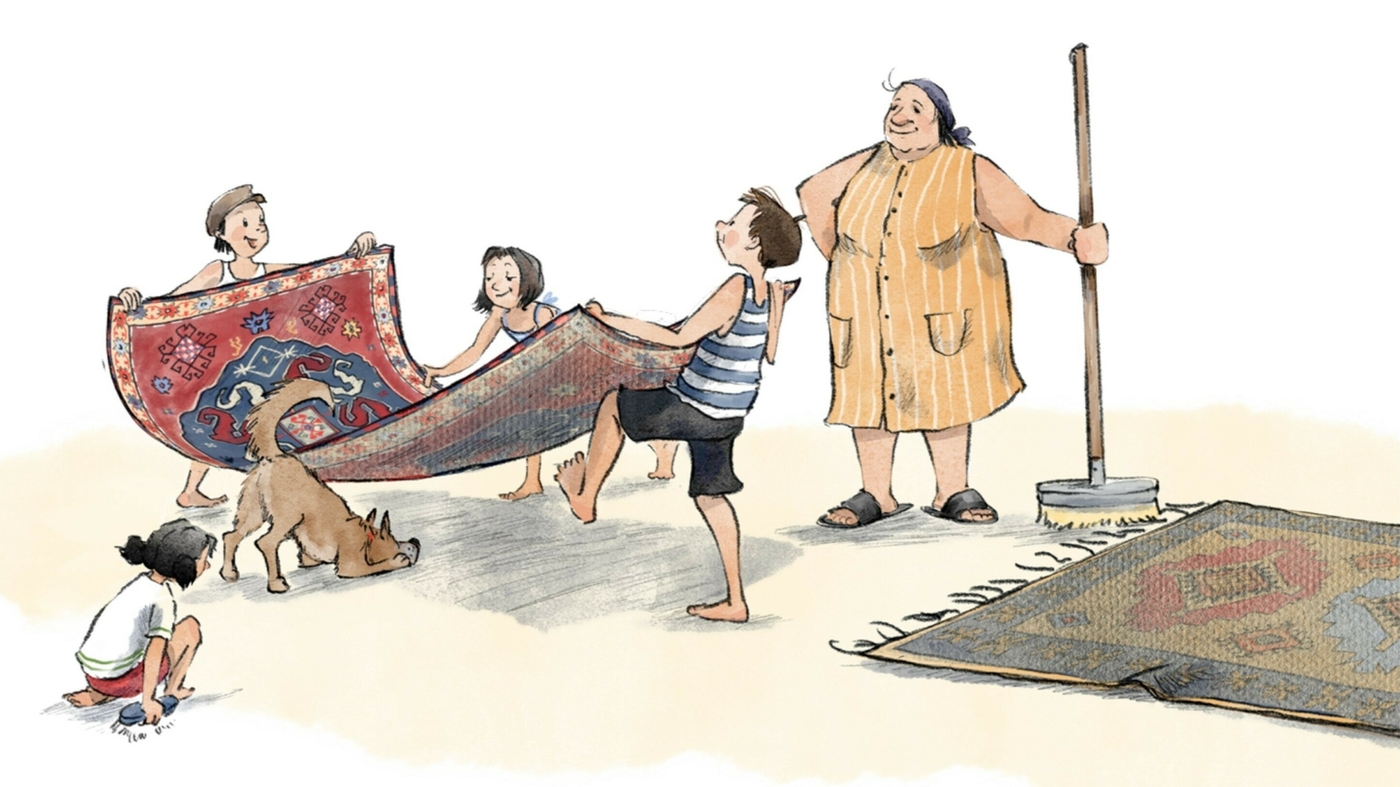
On a warm Indian summer night in early September 2023, my neighbor, Astrid Kamalyan, and I sat on my deck in Chicago, enjoying the evening. We sat next to a grill to ward off the early autumn chill and Astrid regaled me with stories about her childhood summers in Artsakh.
Her debut book, “Bábo: A Tale of Armenian Rug-Washing Day”, was soon to be released by Charlesbridge Publishing, and she was brimming with excitement. Inspired by her ancestral home in Artsakh, the story captures the essence of heritage and community. Exquisitely illustrated by Anait Semirdzhyan, the book, written for children aged three to eight, was named a New York Public Library Best Book of 2023, became the #1 New Release in Children’s Middle East Books on Amazon, was selected as a Junior Library Guild Gold Standard title, and received a Starred Review from Kirkus. I couldn’t wait to sit down with Astrid and delve into this delightful story.
As Astrid and I adjusted the flames on the grill, she reminisced about the family stead and the adventures of her youth.
“So, you mean to tell me that the chickens in Bábo were real?” I asked.
“Yes!” Astrid insisted. “So, first of all, the chickens had their own story because there was this little one that wandered away and when it went back to the coup the other chicken didn’t accept it and didn’t want to share food. They were kind of always like, ‘How dare you leave us? And now you’re coming back.’”
“The prodigal son!” I exclaimed.

“Bábo” is a story about the purity of childhood joy. It is an uplifting and whimsical tale about grandchildren who are tasked to clean a rug by their beloved grandmother. More importantly, “Bábo” is a love letter to Artsakh. When Astrid and I lived in Chicago, we would often meet at the park and she would allow her two small children to climb to the highest peak of the playground equipment. I’d be racked with anxiety, while Astrid would calmly maintain, “My boys are mountain people. They should be able to climb!”
Astrid has often described Artsakh as her “superpower, her source of strength.” On the night that we chatted about “Bábo” she shared one particularly poignant story:
“One of my favorite memories is riding a horse. Not that I knew how to ride one, but I was the kind of girl who would do something just because I wanted to, even if I had no idea how. So, I jumped on a horse and rode it. I went into the mountains of Mets Tagher, my mother’s ancestral village, and went up the mountain on the horse with a sense of belonging to it, and it belonging to me. No book, no words could ever capture that feeling. It’s just this eternal thing that I am part of. And, I know deep down that this is my core, the essence of my being.”
Recently, while scrolling through the Amazon reviews of Bábo, one in particular caught my eye. The reviewer was clearly not Armenian, yet she wrote that the book was “…for children growing up far from their roots, to tell them stories of the richness of their lands.” “Bábo” had struck a chord with that reader, who was most probably an immigrant herself. Like all great fiction, it transcends cultural boundaries, uniting readers through a universal theme: the longing for home.

As we chatted and Astrid’s thoughts journeyed, she shared the passion she feels for the place where she belongs:
“I have never smelled anything like the smell of the mountains in Artsakh. That smell of the wild herbs and especially mountain thyme. I remember when we went back to Yerevan every summer, I didn’t want my jeans washed because I wanted them to smell like mountain thyme. When I moved to Armenia for a year and a half [in 2021], I bought a hand woven Artsakh carpet. And, the store sent a piece of a dried thorny plant wrapped in the rug and I took it out and it smelled of our mountains. It’s almost like they knew, we never really talked about it, but they knew that experience. They knew how special it was.”
In early September 2023, when I first interviewed Astrid about “Bábo”, the connection to her family’s ancestral home was still secure. On September 19, 2023, that connection was brutally severed after the Azerbaijani attack that led to the ethnic cleansing of the entire Armenian population and the loss of Artsakh. Oddly, it was the same day Astrid’s book was released. Yet, it was a day of overwhelming horror. For Astrid, the emotional pain was visceral. I remember her voice on the phone, it was heart wrenching.
A year after the loss of Artsakh, Astrid and I both live in Yerevan and I wanted to interview her again. “Can you go back and remember that extreme emotion and shock you felt on the day of the war?” I asked. Astrid paused for a long time and I realized it was difficult to bring up that trauma. But, after a moment, she answered, “Artsakh is part of my identity. It is part of who I am. So, when it is being sold and traded, it’s the same as if somebody literally cut my body into parts. That’s how it feels for me. It is not just some theoretical idea, it is me, it is who I am. It’s very much who I am.”
Overwhelmed by feelings of helplessness, Astrid says that prayer became her home. “It didn’t have to be a specific Church. I just wanted the silence that they provided and the solitude. And, what did I pray for…for God to save Artsakh lives. That God would save the lives of my people because Artsakh Armenians, there was so much treason already committed against them. They have been used by several governments, our own included.”
There was one review on Amazon about “Bábo” that Astrid has read over and over again. It was written by a fellow Artsakh Armenian: “I grew up in Artsakh (Nagorno-Karabakh) and I was very happy to receive this book. The day it arrived was very symbolic – the day my republic was captured by Azerbaijan (9/20/2023). I lost my home, I fear for my people but I received this small gift, a hope that I hold. A hope that I can build a small home in my son’s heart that reminds me of my home, a hope that I can project some piece of my childhood to my two year old who might never see my homeland again. Thank you Astrid, great work!” The solidarity of that review has stayed with Astrid.
Seeking hope has been a challenge and a constant struggle. Astrid said that she was using every platform she could to speak the truth, however, “when you do not own the media, you do not own the narrative.”
Astrid continues trying to cope with the trauma. “When something like genocide happens, the scale of the destruction is such that whatever effort one has put into their creative work, it is dwarfed by that destruction,” she explains. “So, when old churches are being razed to the ground, what is just one book? What is just one song? It’s extremely disheartening to create in the face of such destruction.”
“So then, is creation an act of defiance?” I ask.
“If readers can teach their children about our culture, then there is a future for us,” Astrid says. “It is just a small ray of light in utter and complete darkness. So, the way I perceive the release of the book is solely through the lens of, did it really give any light to a reader? If it did, that means it did its job and I really hope that is the case. This is how I like to think about the book.”


